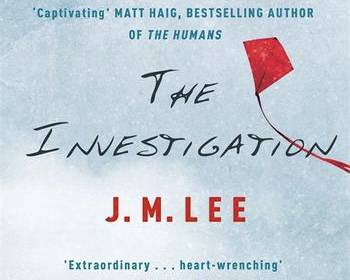Longlisted for the 2017 Independent Foreign Fiction Prize, South Korean author Jung-myung Lee’s novel, “The Investigation” (translated by Chi-young Kim), is said to be inspired by a true story, which is perhaps stretching things a bit far. In 1943, real-life Korean poet Dong-ju Yun was studying in Kyoto when he was arrested for “anti-Japanese activity” and sent to a prison in Fukuoka, where he died at age 27. Novelists love a healthy amount of uncertainty into which they can insert themselves and build a plot, and Yun’s death provides Lee with plenty of room for speculation. Set in Fukuoka Prison in 1944, this claustrophobic Dostoevskian novel is both a gripping murder mystery and a moving evocation of the power literature has to provide light in the darkest of places.
Outside the prison walls, war rages as American bombs fall ever closer, while inside, life is a microcosm of the conflict. The guards are all Japanese; the prisoners all Korean. Brutality is the order of the day, with Japan’s colonial rule of the Korean Peninsula played out in the prison’s cells and interrogation rooms. Inmates are physically abused and have medical experiments conducted upon them. They are forced to adopt Japanese names and are only allowed to correspond in Japanese. The very act of writing in Korean is regarded as subversive, so all books and writing materials are confiscated. Poetry is an act of rebellion. Every piece of discovered literature is treasured.



















With your current subscription plan you can comment on stories. However, before writing your first comment, please create a display name in the Profile section of your subscriber account page.